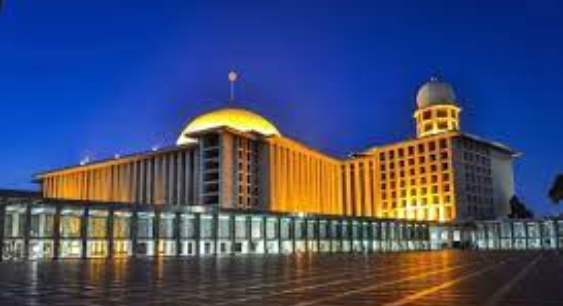desk mosque:
In the heart of Jakarta, the grand Istiqlal Mosque was built with a vision for it to stand for a thousand years.
The mosque was conceived by Soekarno, Indonesia’s founding father, and was designed as an impressive symbol for the country’s independence. Its seven gates — representing the seven heavens in Islam — welcome visitors from across the archipelago and the world into the mosque’s lofty interior.
But they don’t just see the light here. It fuels them.
A major renovation in 2019 installed upwards of 500 solar panels on the mosque’s expansive roof, now a major and clean source of Istiqlal’s electricity. And this Ramadan, the mosque has encouraged an energy waqf — a type of donation in Islam that continues to bear fruit over time — to grow its capacity to make renewable power.
Her Pramtama, deputy head of the Ri’ayah — or building management — division of Istiqlal Mosque, hopes that Islam’s holiest month, when the faithful flock to mosques in greater numbers, can provide momentum to Istiqlal’s solar project through donations.
The mosque’s climate push is just one example of different “Green Ramadan” initiatives in Indonesia and around the world that promote an array of changes during the Muslim holy month, which has fasting and, in many cases, feasting elements as people gather to break their fasts.
In a month where restraint and charity are emphasized, recommendations can include using less water while performing the ritual washing before prayers, replacing plastic bottles and cutlery during community iftars with reusable ones and reducing food waste. Other suggestions include carpooling to mosques, using local produce, emphasizing recycling and using donations to fund clean energy projects.
For the world to limit the effects of climate change — which is already causing worsening droughts, floods and heat waves — the use of dirty fuels for electricity and transport, petrochemicals to make products like plastics and the emissions from food waste in landfills all need to be drastically slashed, scientists say
AP news



















